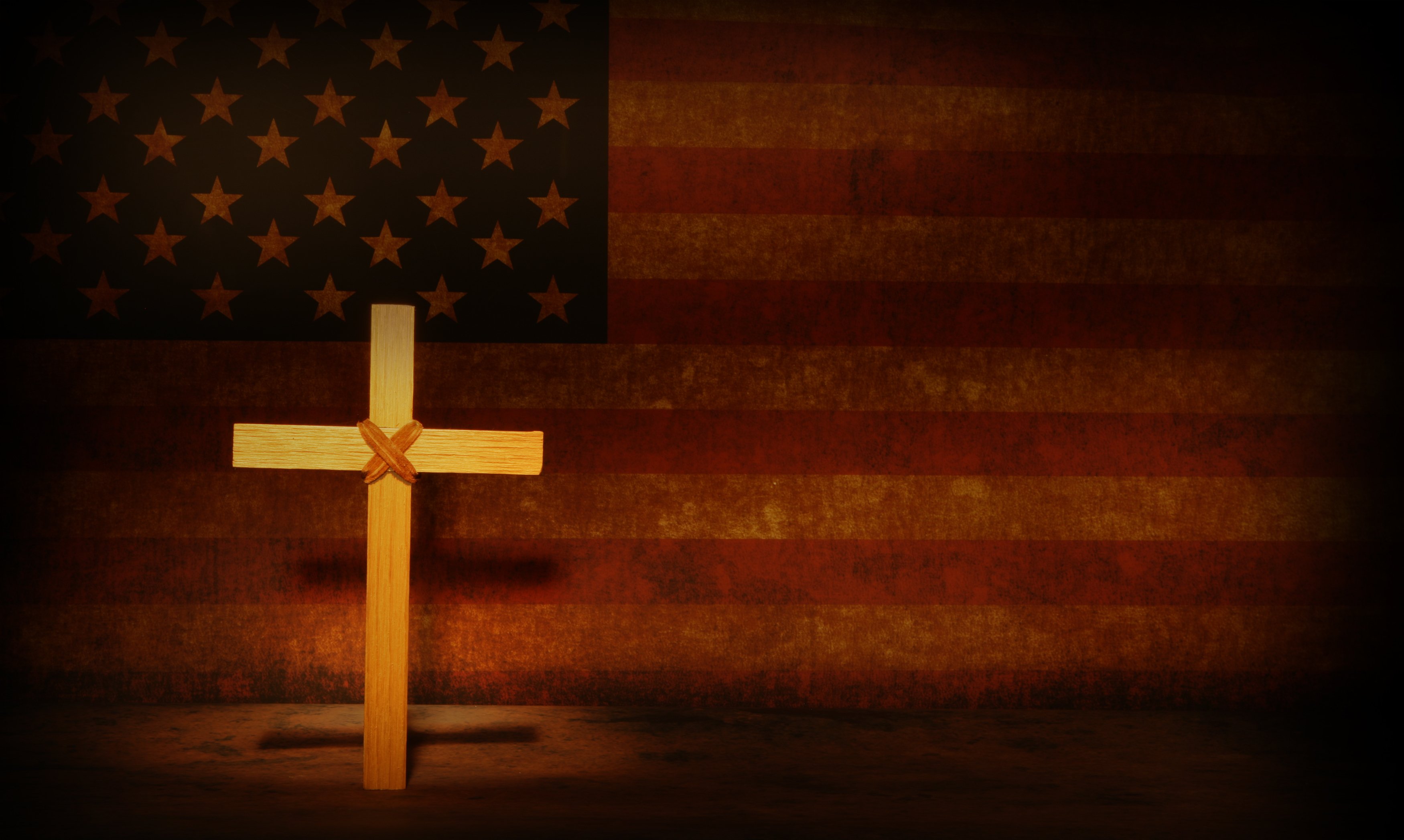
In recent American politics, there has been mounting concern over the rise of Christian nationalism, the belief that the United States has been an essentially Christian country since its founding and therefore has a providential role to play in history. Christian nationalists advocate for laws, funding, and public symbols that promote Christian practice and Christian morality. In the US today, Christian nationalism is almost exclusively associated with right-wing causes, including opposition to immigrants and to racial, religious, and sexual minorities. Religious nationalism is not exclusive to Christianity or America, and our country’s version of it is generally seen as one instance of a broader worldwide phenomenon: we can readily find variations of religious nationalism in India, Israel, Turkey, Myanmar, and so on.1
In most analyses of Christian or religious nationalism, the emphasis is on the “Christian” or “religious”: we assume there is something peculiarly dangerous about mixing religion with politics. But here I want to focus instead on the second term in these phrases: nationalism. The problem is not just Christian nationalism, but nationalism, as practiced by Christians and non-Christians alike. The solution to the problem of religious nationalism is not secular nationalism. In fact, nationalism, whether religious or secular, is a form of idolatry, though it is a form of splendid idolatry that is dangerous precisely because it appeals to genuine virtues such as love for one’s neighbors and the willingness to sacrifice for them. The tough question is how to know when such virtue becomes vice.
The idea that nationalism is idolatrous may seem to be a strong claim, but it simply names theologically a reality that some sociologists have recognized for over a century. Many scholars of nationalism are convinced that nationalism as such is a religion, whether or not some faith like Christianity or Islam is involved. To use the term “religion” in this way is different from the way it is commonly used—that is, to refer to the explicit worship of a god or gods. To call nationalism—even secular nationalism—a religion is to assume that religion is broader than just the explicit worship of a named god, and it is to assume that what is decisive is not what people say they believe but how they actually behave. If someone claims to be a Christian but never goes to church and spends their waking hours obsessing about the stock market, then the colloquial idea that capitalism is their religion is closer to the truth. This is the basis of the idea that “idolatry” refers to more than sacrificing a goat to Baal. When Paul says that greed is idolatry (Colossians 3:5), he does not mean that people explicitly and literally bow down and worship money but rather that their behavior reveals an inordinate devotion to a created reality that is not God. People do not have to claim explicitly that their country is their god and nationalism is their religion if their behavior and demeanor demonstrate it.
In sociology, this broad idea of religion is especially associated with Émile Durkheim, who came from a long line of rabbis and studied to be one himself. Once he gave up belief in God, he came to believe that religion was about social dynamics and not any divine reality; religion is in fact the self-worship of the group. “Religious force is only the sentiment inspired by the group in its members, but projected outside of the consciousnesses that experience them, and objectified. To be objectified, they are fixed upon some object which thus becomes sacred; but any object might fulfill this function.”2 It doesn’t matter if collective self-worship is projected onto a god or a flag. Durkheim’s definition of religion may seem idiosyncratic to us, but recognition that humans worship all sorts of things is just an iteration of the scriptural critique of idolatry he would have absorbed in rabbinical school; the only difference is that the Abrahamic traditions believe there is one true God amid all the false ones. Durkheim abandoned belief in the God of Abraham and did not mind that devotion to one’s own nation was replacing devotion to the scriptural God in the modern West. He was in fact an ardent French patriot, though the death of his son in World War I finally soured him on the nationalist cause.
Carlton Hayes, professor of history at Columbia, was compelled by the zealotry and carnage of World War I to begin his investigations into nationalism as a form of religion, resulting in his seminal 1926 essay “Nationalism as a Religion” and his 1960 book Nationalism: A Religion. Hayes, like Durkheim, recognized a perduring human “religious sense” that has largely migrated in Western modernity from the church to the nation. The nation is the modern person’s god, on whom they depend for protection and salvation. Hayes details the elaborate myths, feast days, and liturgies surrounding the flag, national heroes, and foundational events in the nation’s history. Nationalism is built especially around theologies of sacrifice: “Perhaps the surest proof of the religious character of modern nationalism is the zeal with which all manner of its devotees have laid down their lives on battlefields of the last hundred years.”3 More recently, Carolyn Marvin and David Ingle have written, “Nationalism is the most powerful religion in the United States, and perhaps in many other countries.”4 Nationalism is so powerful because it is the worship of us together, a kind of collective self-worship, one originally engineered by elites, but one accepted and reproduced by the common people.